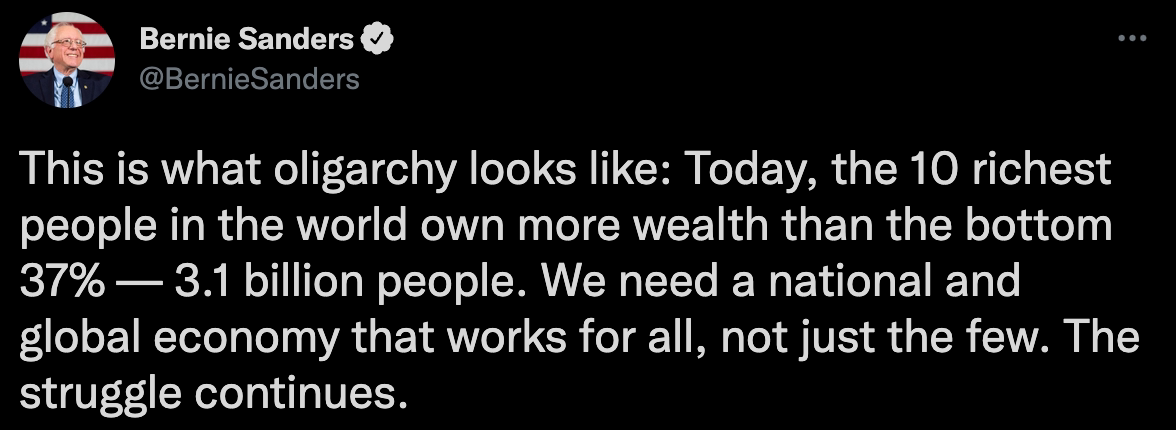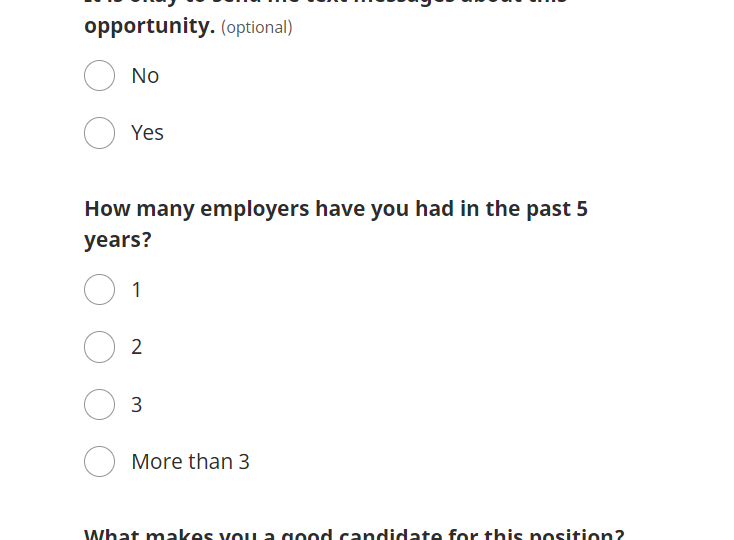Having strong feelings about clock in/out policy that only allows a 3 minute window. If I clock in more than a minute early, I am stealing time and if I clock in more than a minute after start time, I am late. After 5 incidents, I am subject to firing. I am human, a HUMAN -not a machine! There are thousands of variables that can make a 1 minute difference in my pre-work/break routine, which means I compensate by being to work early and waiting for the clock-in window, both at the start of shift and at the end of break. Which means I am spending a fair amount of time at work that I am not getting compensated for. Who is the one really stealing time here?
Author: Olivia
how do we feel about this?

We live in an oligarchy

30s, lost job during covid, no offers yet. They have severe anxiety. They don't ask me about anything else and never have other than work and school
I started working for this company back in 2019 and I saw so many red flags in the first few weeks but I needed the paycheques. I told myself I would keep looking regardless. When Covid became more mainstream in my city and cases were on the rise, upper-management and most of middle management disappeared overnight. We were told a lot of them were on vacations unrelated to the covid situation, or had doctor's appointments. Some wrote some emails about how their kids school were now closed and how imperative it was that we continue to show up and they were scrambling for a solution. The government imposed restrictions on businesses but they told us these restrictions didn't apply to the business as we were considered an essential service, all lies. They started bringing us gift cards or buying us lunch to thank us for coming into work. The company…
Little information for everyone
🧵Under the National Labor Relations Act, workers have a right to talk to each other about their wages and other working conditions. This can be a vital first step to acting with coworkers to make a workplace fairer—and to organize a union. Workers also have a right under the NLRA to talk with those who may help them improve their working conditions; this includes labor unions, the NLRB and other government agencies, the media, and civil rights organizations. Workplace rules that prohibit employees from talking to each other or third parties about wages or other working conditions seriously discourage employees’ rights to organize and are illegal under the NLRA. Sometimes these work rules don’t directly say that employees can’t talk to one another or third parties about working conditions but are so confusing or so broadly written that workers may not do so out of fear of breaking a rule.…

Here’s the deal. I left retail years ago to get away from the culture of my life having to revolve around my work. I.e. working nights, weekends, and holidays. And being told by bosses to bug my friends and family to come buy from us, or come in a fill out a credit card app. (Jewelry stores are some of the worst when it comes to this nonsense.) I got into the insurance industry. Not as a sales person. But a CSR. Which means, I service current clients. I do not produce, I do not sell. Other than cross-selling to the occasional existing client, I do not go out of my way to sell insurance. Because it’s not what I was hired for. My job is to help people. It’s what I like about insurance. Helping people. On the contrary, I don’t like selling. My boss knows this and hired…

Union for Mandarin Starbucks?
